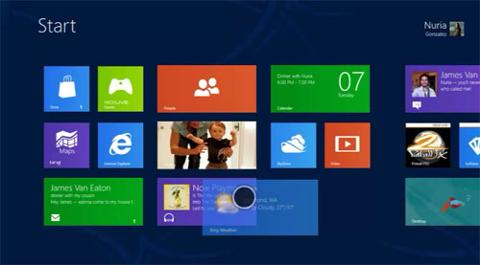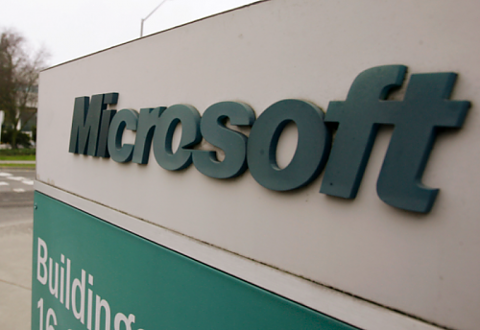
Facebook’s biggest threat will come from a “mobile-first social startup,” according to a
joint survey by IDC and Appcelerator of 5,526 Appcelerator Titanium developers. Some 66 percent of those developers apparently believe that startup will bring social applications on mobile devices that will break Facebook’s current hold on the market. They also believe that, by 2015, they’ll be developing mobile applications for televisions, Google Glass, and gaming consoles in addition to tablets and smartphones. In the meantime, developers continue to prefer Apple’s iOS mobile operating system, with 85 percent of them telling the survey-takers that they were very interested in developing iPhone-specific apps, while 83 percent indicated similar curiosity about the iPad. Interest in Android smartphone and tablet apps lagged behind at 76 percent and 66 percent, respectively, while interest in HTML5 mobile Web development hit 66 percent. Microsoft can perhaps take some heart in 33 percent of developers expressing interest in developing apps for Windows 8 tablets, ahead of Windows Phone 7 (21 percent), Amazon’s Kindle Fire (18 percent), BlackBerry smartphones (9 percent), and the BlackBerry PlayBook tablet (8 percent). Despite HTML5’s placement on that list, and the decision by companies such as
Salesforce to embrace it as part of a mobile-app strategy, developers were either negative or neutral on basically every feature of HTML5, from monetization and fragmentation to distribution and user experience.
Windows 8
Surveyed developers seemed interested in the possibilities of Windows 8 on mobile devices, with some significant reservations. “What interests developers most about Windows 8 tablets is actually the shared development capabilities between desktop and tablet promised by Microsoft with the launch of Windows 8,” read the Sept. 25 report accompanying the survey data. “We believe this reflects the continuing issues that developers face in supporting so many platforms, with so many interaction mediums, and so many different ways that end users will consume an application.” At the same time, the report added, “Microsoft support for the tablet form factor actually rated the lowest among reasons developers were interested in Windows 8, perhaps echoing Microsoft’s diminished position and lowered expectations for it among mobile app developers.” Those developers believed that RIM would end up the company most affected by a successful Windows Phone 8 portfolio, even as Apple’s iPad had the most to lose from a Windows 8 tablet proving a hit among businesses and consumers. Those sentiments were not overwhelming definitive; it’s unclear, for example, how the upcoming Microsoft portfolio will affect Android, which is much more fragmented than iOS or RIM’s BlackBerry OS. On top of that, there’s also the distinct possibility that Windows 8 and Windows Phone 8 could fail in the marketplace. “Windows 8 will take time to catch up, given its low penetration in the installed base of devices,” the report added. “Thus, the first task for Microsoft will be to garner significant device sales so as to support a vibrant ecosystem like those Apple and Google have engendered.”
Image: Denys Prykhodov/Shutterstock.com
 Facebook’s biggest threat will come from a “mobile-first social startup,” according to a joint survey by IDC and Appcelerator of 5,526 Appcelerator Titanium developers. Some 66 percent of those developers apparently believe that startup will bring social applications on mobile devices that will break Facebook’s current hold on the market. They also believe that, by 2015, they’ll be developing mobile applications for televisions, Google Glass, and gaming consoles in addition to tablets and smartphones. In the meantime, developers continue to prefer Apple’s iOS mobile operating system, with 85 percent of them telling the survey-takers that they were very interested in developing iPhone-specific apps, while 83 percent indicated similar curiosity about the iPad. Interest in Android smartphone and tablet apps lagged behind at 76 percent and 66 percent, respectively, while interest in HTML5 mobile Web development hit 66 percent. Microsoft can perhaps take some heart in 33 percent of developers expressing interest in developing apps for Windows 8 tablets, ahead of Windows Phone 7 (21 percent), Amazon’s Kindle Fire (18 percent), BlackBerry smartphones (9 percent), and the BlackBerry PlayBook tablet (8 percent). Despite HTML5’s placement on that list, and the decision by companies such as Salesforce to embrace it as part of a mobile-app strategy, developers were either negative or neutral on basically every feature of HTML5, from monetization and fragmentation to distribution and user experience.
Facebook’s biggest threat will come from a “mobile-first social startup,” according to a joint survey by IDC and Appcelerator of 5,526 Appcelerator Titanium developers. Some 66 percent of those developers apparently believe that startup will bring social applications on mobile devices that will break Facebook’s current hold on the market. They also believe that, by 2015, they’ll be developing mobile applications for televisions, Google Glass, and gaming consoles in addition to tablets and smartphones. In the meantime, developers continue to prefer Apple’s iOS mobile operating system, with 85 percent of them telling the survey-takers that they were very interested in developing iPhone-specific apps, while 83 percent indicated similar curiosity about the iPad. Interest in Android smartphone and tablet apps lagged behind at 76 percent and 66 percent, respectively, while interest in HTML5 mobile Web development hit 66 percent. Microsoft can perhaps take some heart in 33 percent of developers expressing interest in developing apps for Windows 8 tablets, ahead of Windows Phone 7 (21 percent), Amazon’s Kindle Fire (18 percent), BlackBerry smartphones (9 percent), and the BlackBerry PlayBook tablet (8 percent). Despite HTML5’s placement on that list, and the decision by companies such as Salesforce to embrace it as part of a mobile-app strategy, developers were either negative or neutral on basically every feature of HTML5, from monetization and fragmentation to distribution and user experience.
 Facebook’s biggest threat will come from a “mobile-first social startup,” according to a joint survey by IDC and Appcelerator of 5,526 Appcelerator Titanium developers. Some 66 percent of those developers apparently believe that startup will bring social applications on mobile devices that will break Facebook’s current hold on the market. They also believe that, by 2015, they’ll be developing mobile applications for televisions, Google Glass, and gaming consoles in addition to tablets and smartphones. In the meantime, developers continue to prefer Apple’s iOS mobile operating system, with 85 percent of them telling the survey-takers that they were very interested in developing iPhone-specific apps, while 83 percent indicated similar curiosity about the iPad. Interest in Android smartphone and tablet apps lagged behind at 76 percent and 66 percent, respectively, while interest in HTML5 mobile Web development hit 66 percent. Microsoft can perhaps take some heart in 33 percent of developers expressing interest in developing apps for Windows 8 tablets, ahead of Windows Phone 7 (21 percent), Amazon’s Kindle Fire (18 percent), BlackBerry smartphones (9 percent), and the BlackBerry PlayBook tablet (8 percent). Despite HTML5’s placement on that list, and the decision by companies such as Salesforce to embrace it as part of a mobile-app strategy, developers were either negative or neutral on basically every feature of HTML5, from monetization and fragmentation to distribution and user experience.
Facebook’s biggest threat will come from a “mobile-first social startup,” according to a joint survey by IDC and Appcelerator of 5,526 Appcelerator Titanium developers. Some 66 percent of those developers apparently believe that startup will bring social applications on mobile devices that will break Facebook’s current hold on the market. They also believe that, by 2015, they’ll be developing mobile applications for televisions, Google Glass, and gaming consoles in addition to tablets and smartphones. In the meantime, developers continue to prefer Apple’s iOS mobile operating system, with 85 percent of them telling the survey-takers that they were very interested in developing iPhone-specific apps, while 83 percent indicated similar curiosity about the iPad. Interest in Android smartphone and tablet apps lagged behind at 76 percent and 66 percent, respectively, while interest in HTML5 mobile Web development hit 66 percent. Microsoft can perhaps take some heart in 33 percent of developers expressing interest in developing apps for Windows 8 tablets, ahead of Windows Phone 7 (21 percent), Amazon’s Kindle Fire (18 percent), BlackBerry smartphones (9 percent), and the BlackBerry PlayBook tablet (8 percent). Despite HTML5’s placement on that list, and the decision by companies such as Salesforce to embrace it as part of a mobile-app strategy, developers were either negative or neutral on basically every feature of HTML5, from monetization and fragmentation to distribution and user experience.


